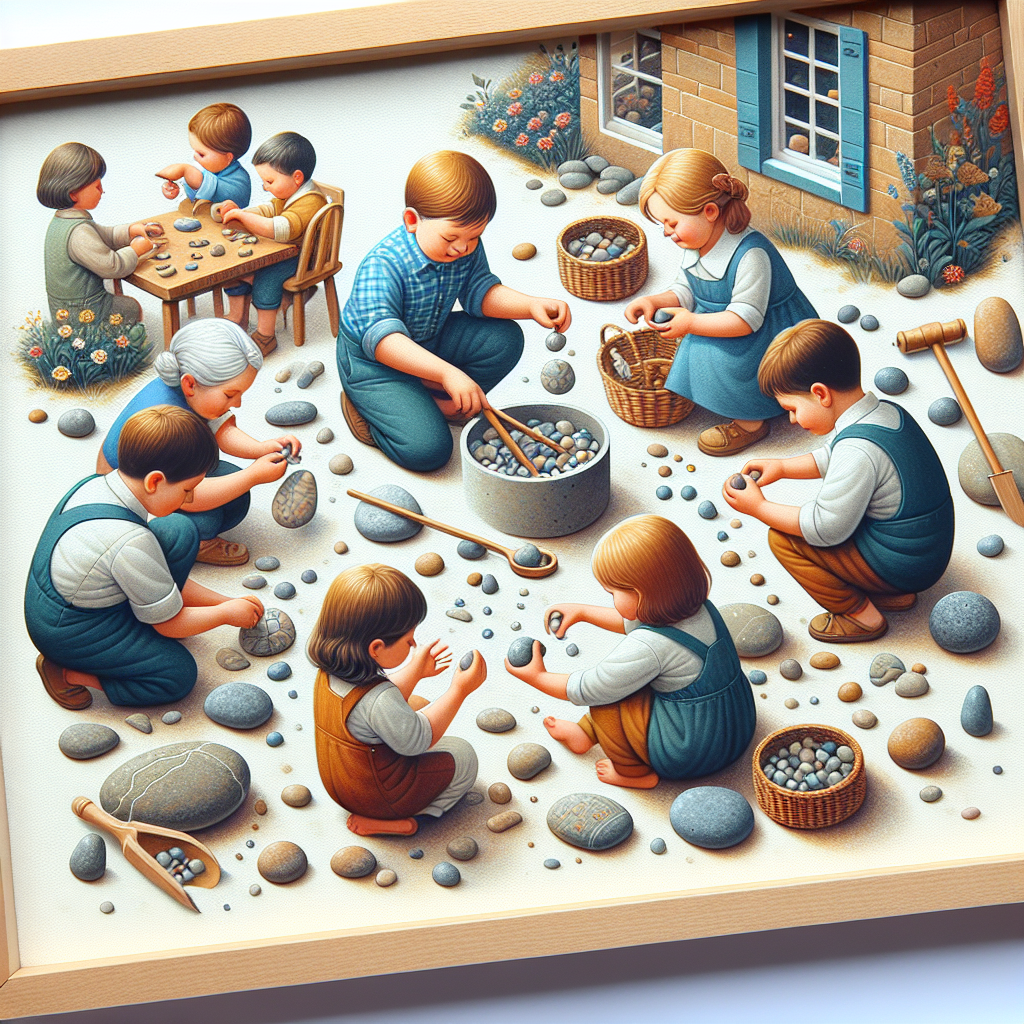Child Development: A Complete Guide to the Essential Stages
Childhood is a time full of exploration and development. Through play, children learn about the world around them, develop motor, cognitive and emotional skills and form their personality. An interesting and rather under-explored aspect of the game is that of pebbles. This article aims to give parents a detailed insight into the benefits and precautions of playing in pebbles.
The benefits of the Pebble Game
Playing in pebbles may seem simple at first glance, but it offers a wide range of benefits for a child's development. We will explore how this type of activity can positively influence your child's development.
Motor Development and Coordination
Activities that require handling pebbles help develop fine motor skills. Picking up, sorting and placing pebbles helps improve hand-eye coordination and dexterity.
Stimulation of Creativity and Imagination
When children play with pebbles, they don't just see simple rocks. They can become anything in their imagination: from food for dolls to sunken treasures or decorative elements for their constructions. This kind of play stimulates imagination and creativity.
Encouraging Independent Play and Problem Solving
Pebble play often encourages children to create their own games and ways of interacting. They learn to solve problems and think critically to achieve their goals in the game.
Connecting with Nature
Outdoor play, including playing with pebbles, allows children to connect with nature. This can instill in them a respect and appreciation for the environment.
Necessary Precautions in Playing with Pebbles
Even though playing in the pebbles offers multiple benefits, it is essential to consider some precautions to ensure safety.
Close Surveillance
Very young children may be tempted to put the pebbles in their mouths, which can lead to a choking hazard. That is why it is crucial that an adult supervise the game, especially when it comes to children under 3 years old.
Choosing the Right Pebbles
Pebbles should be large enough to prevent hazards, but also easy for children to handle. It is also good to avoid pebbles with sharp edges to prevent injuries.
Establishing Rules of the Game
Children should understand that throwing rocks is not acceptable and that they must play responsibly to avoid accidents.
Cleanliness and Hygiene
It is important to ensure that the pebbles are clean and that play takes place in a suitable space, away from dirty or unhealthy areas.
Learning Through Play
As parents ensure a safe play environment, they can take the opportunity to incorporate valuable lessons. Children can learn about geology, rock shapes and sizes, or use pebbles to practice counting and simple math.
Play Pebbles in the Educational Context
Play is not just a fun activity; it is also a learning opportunity. More schools and educational centers have begun to integrate pebble play into their curriculum to improve children's fine motor skills and encourage experiential learning.
Influence on Emotional Health
Play is vital for a child's emotional health. Giving children the freedom to play with pebbles can be an effective way to reduce stress and promote relaxation.
Building Social Relations
Shared pebble play can help children develop social skills. They learn to collaborate, share and negotiate with other children, thus preparing them for real-life social interactions.
Practical Pebble Play Ideas
To put the benefits of pebble play into practice, here are some activity ideas that parents and children can try together.
Art with Pebbles
Children can use the pebbles to create mosaics or paintings. This improves their artistic skills and allows them to express their emotions and vision.
Educational Games
Pebbles can be used to learn colors, numbers or even letters. For example, parents can write numbers on stones and ask children to place them in order.
Balance Games
Building a pebble tower can be a fun and challenging game that provides an opportunity to develop concentration and perseverance skills.
Conclusion: Play in Pebbles as Part of Child Development
By combining the various cognitive, motor and emotional benefits of playing in pebbles with the necessary precautions, we can provide our children with an enriching and safe play experience. We invite parents to discover the potential of this type of play and encourage their children's creativity and learning. For more resources and ideas, feel free to visit our store or subscribe to our newsletter.
Pebble play may seem like a simple concept, but its impact on a child's development is vast and valuable. It's a wonderful adventure waiting to be explored, giving our children a solid foundation for a lifetime of learning and discovery.














































































































































